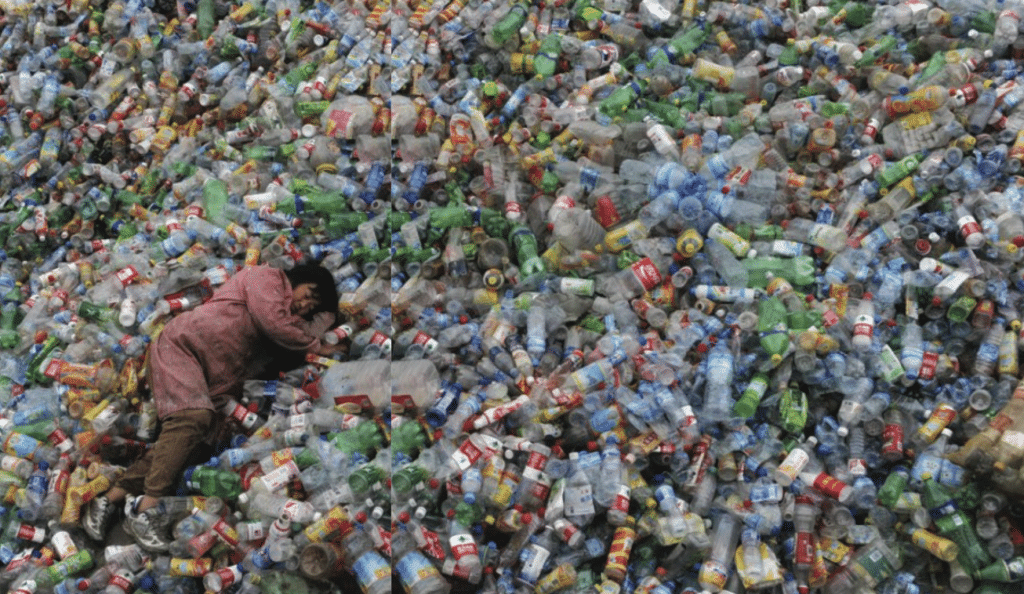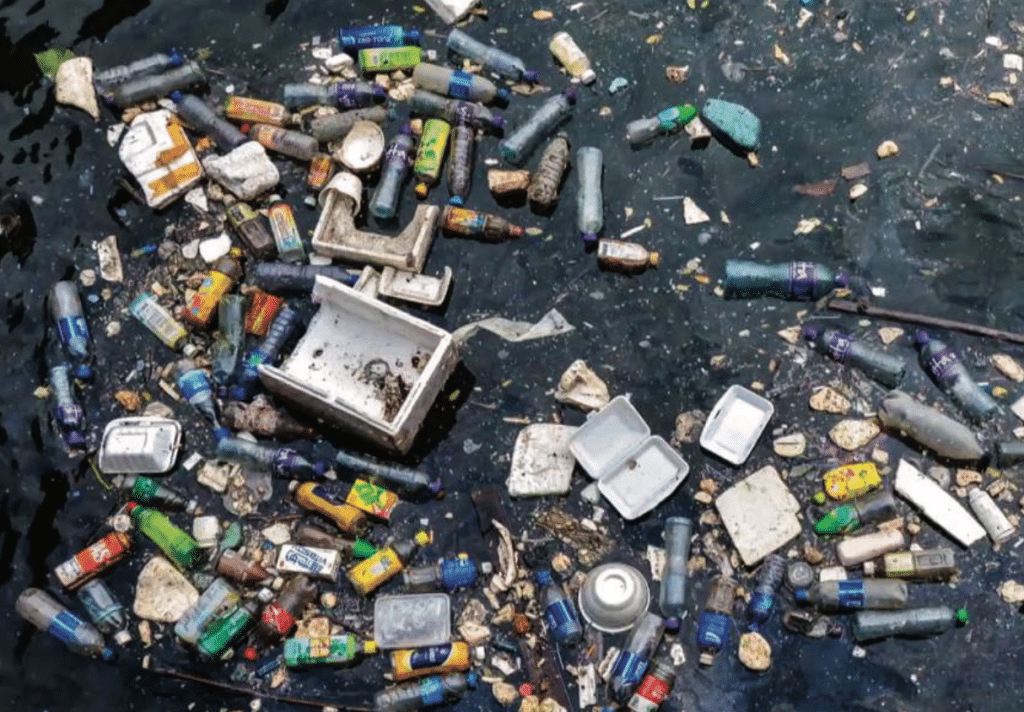For years, it was widely ignored, even as the evidence grew more and more overwhelming. Reports had been flooding in from some of the remotest places on Earth, from the middle of the Pacific Ocean to the North Pole. Researchers found its impact was hammering every ecosystem, disrupting natural processes and spreading havoc across the living world.
Then, slowly at first, the message began to resonate well beyond the usual narrow circles of scientists and environmental NGOs. The public’s ears pricked up, the media began to look deeply into the story and politicians, ever eager to follow the crowd, jumped aboard and began to huff about taking action, stepping up to the plate, not standing idly by, etc.
And so, slowly, after scandalous decades of neglect and indifference, the wheels of change began their inexorable shift. The task ahead remained Herculean but at least many societies could be said to be engaged, and from there, anything is possible.
I would like at this point to claim the preceding paragraphs are a description of how humanity has finally – hopelessly late – begun to grapple with the existential ecological crunch of which emissions-fuelled climate change is the most obvious manifestation.
Sadly, this is not the case. The belated public response is instead to the plague of plastic pollution that has reached such an epidemic point that even the usual defenders of the free market haven’t bothered to construct a phoney ‘alternative’ narrative to beguile the media and stymie political action.
The extent to which a carelessly used and discarded by-product of global industrialisation has come to present such a potent threat to the web of life on Earth has been known in scientific circles for many years. Marine biologists in particular have been trying with little success to draw attention to the rising tide of plastic pollution and its deeply insidious effects. Perhaps it was only when it became obvious that the human food-chain is also compromised did the wider public really start to sit up and take note.
Plastic marine debris is now described as: “one of the most pervasive pollution problems facing the world’s oceans and waterways”, by the US National Oceanic and Atmospheric Administration. Around a million tons of plastics, comprising tens of billions of individual pieces, is now produced globally every week. Perhaps a tenth is ever recycled.

People come and people go, but plastics persist. Complex polymers, under the influence of UV radiation and sea water, break down into near-microscopic monomers that enter at the base of the food chain, being ingested in their trillions by the vast shoals of tiny organisms that support and underpin the entire marine web of life.
As these creatures are eaten, ever increasing amounts of toxic plastic pollutants are concentrated in the next level of the chain, and so on, until creatures at the apex, from sharks, dolphins whales and sea birds, are carrying catastrophic levels of toxins. Consider that every square mile of the surface of every sea and ocean on Earth contains around 50,000 pieces of plastic debris and you begin to get a grasp of the scale of the crisis.
And, with the equivalent of a full dump truck of new plastic waste entering the world’s waterways every minute, it is manifestly clear that nothing short of a radical, global response will suffice if we are to have any chance of stemming the toxic tide of plastic pollution before it is too late.
Ireland’s response has been mixed. Back in 2002, the then government introduced a modest tax on the purchase of single-use plastic bags handed out in their millions at supermarket checkouts and elsewhere. Industry critics said it was unfair, too expensive to administer, would never work etc. etc. They were all proved wrong when, within 12-18 months of its introduction, the quantity of single-use plastic bags fell by some 90%. Even more unexpectedly, the public actually supported the tax, and this support was maintained when it was increased to ensure compliance.
Ireland found itself, for a short time, in the unusual position of being a global leader on an environmental issue. Success would, however, be short-lived. In the intervening decade and more, ever more plastics have made their way into our lives. It’s not unusual to find apples being sold on a plastic mat, with cellophane wrapping and perhaps an outer layer of another plastic.
Milk went, in the space of just a few decades, from being sold in reusable glass bottles to in recyclable paper tetrapaks to now being largely sold in heavy plastic jugs. Meanwhile, tiny plastic yogurt pots are sold with more wrapping than yogurt. The ubiquitous ‘take-away’ coffee cup is constructed with a plastic inner lining, making the entire cup (and its plastic lid) unrecoverable.
Ireland is in fact the EU’s number one per capita producer of plastic waste. Irish people account for 61kg annually – this is nearly 50% above the EU average. Repak, the industry-funded recycling group, boasts of our high levels of recycling relative to other countries, but this begs the question: what exactly happens to all this material? The short answer is that, in 2016, 95% of all Irish plastic waste was shipped to China for ‘recycling’. Conveniently for us, far lower environmental standards apply in much of China, so quite what happens to our so-called recycled waste remains unclear (China has since shut its doors to western wastes, which will now have to be dealt with much closer to home).
I was involved in a recent radio debate on the issue of plastics hosted by Newstalk. Repak CEO, Seamus Clancy explained in glowing terms some of the achievements of the industry. He instanced a decline of several grams in the average weight of a plastic drinks bottle as demonstrating the industry’s determination to reduce waste. What Clancy was less forthcoming was on the total number of plastic bottles in circulation.
The weight of an individual bottle is almost immaterial when overall volumes continue to increase rapidly. An effective antidote would be a consumer-side levy, similar to the mineral-bottle refund common in the 1970s and 1980s. A 15-cent levy per plastic Coke bottle, redeemable by bringing the bottle back to a collection point, would be hugely effective.
Despite their professed interest in reducing the mountain of plastic waste, Repak is resolutely opposed to any attempts at placing levies on plastic bottles at the point of sale – the very tactic that was so successful for plastic bags. Clancy claims that the costs of recycling are borne by the manufacturers, and that, of course, any kind of return-and-refund scheme would be too expensive, unwieldy, inconvenient etc.
So, what are these costs that the industry, via Repak, is so keen to cover? For starters, it charges its members €80 per tonne of plastic. Let’s take Coca Cola: they can manufacture around 45-50,000 plastic bottles per tonne. For this, they pay Repak €80, or around €0.001 per bottle, according to analysis carried out by the NGO, Voice Ireland. Small wonder the packaging industry is so keen on its current ‘self-regulating’ system, one designed to give the impression of action while doing absolutely nothing to in any way stem the unnecessary use of plastics in Ireland, or to aid in their recovery. Compare the industry-side €80 per tonne levy with the cost borne by local authorities to maintain street bins and to hire litter collectors. Conservatively, this is around €500 per tonne, almost seven times higher than the cost being levied on the companies producing this tsunami of waste packaging in the first place.
Rwanda is not a country you would necessarily associate with environmental leadership, but back in 2008 it imposed a near-total ban on plastic bags and packaging, in response to the devastating impacts of plastic waste in its rivers, lakes and countryside. Customs officials at the airport in Kigali check all incoming visitors and their luggage for plastic, which is confiscated on the spot.
The nationwide ban is backed up by enforcement, including a potential four-year jail term. Viewed from Ireland, where light-touch self-regulation is the norm, this might seem excessive, even draconian. In time, as the deadly global effects of plastic pollution become ever more pervasive, our approach, not theirs, may appear the more extreme.
John Gibbons
John Gibbons is an environmental writer and commentator and tweets @think_or_swim
